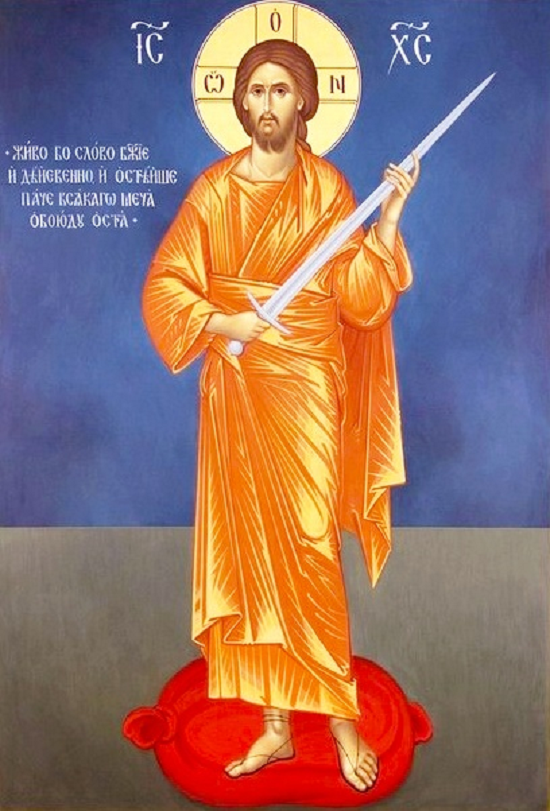Scripture Readings

Although it may not seem so, today’s gospel reading is very profound. It touches on the essence of human spirituality—our connection with reality and with God. The tendency is to view our human life as a continuum—from conception to death and beyond. Our physical existence follows that arc, and our various intelligences seem to follow suit. We learn in a dozen different formats: language, mathematics and logic, music, movement and dance, visual and special perception, our emotions even learn. We start out life as ignorant and, through careful instruction and diligent practice, we get better.
It might be nice if spirituality followed the same pattern. Then, we could sit at the feet of a guru or pick up an inspired book that would tell us how to be spiritual. After that, all we would need would be practice. Some think that’s enough. We’re surrounded by spiritual practices. We have prayer and meditation. We have contemplative prayer and the Rosary. We have yoga, the liturgy, and an inexhaustible supply of rites and rituals to aid us in our spiritual practice. All these things are good; all these things are helpful. All these things work to support us in our spiritual journey. We might say that all these things are necessary but not sufficient to create and sustain a spiritual life.
If we were to graph our expertise in any aspect of our life against time, the graph would start out low, gain height very quickly, slowly level off, and then start dropping as age takes its toll on all of our faculties. The graph of our spiritual life would look very different. It would start out high, as our spiritual life begins in utter simplicity, then it would begin slowly dropping. The rate of decrease would increase as life got in our way with its complexities, its confusion, its conflicts, its struggles, its gains and losses. All of these compete with our spiritual focus and, in time, make spirituality appear less and less practical, less relevant. For some, spirituality can even appear to be a distraction or even a hindrance from achieving more important things.
Then, into some lives comes a moment of grace. There’s a technical term for that moment of grace. It’s called a καιρος (kairos), a critical moment. The kairos never looks anything like what we’d expect a “moment of grace” to be like. In the kairos, life as we know it collapses. It may be a physical, mental, emotional, or even moral collapse. The supposedly smooth arc of our spiritual growth is ruptured. Nothing is the same after the kairos as before. For the recipient of this moment of grace, time is split in two: there is everything before the kairos, then everything after it. It’s as if you were on a train going to one destination and suddenly you found yourself on a totally different track, going somewhere else entirely.
There’s another element of the kairos I want you to be aware of. Before it, you probably had a more or less clear idea of where you wanted your life to go and how you planned to get there. After the kairos, you have no idea where your life is taking you and you have little practical choice but to surrender to the unknown and to cooperate with the grace that’s carrying you there. Even Saint Paul, after his kairos on the road to Damascus, prayed that things might be different. The voice that came to him in prayer said, “My grace is enough for you.” [2 Corinthians 12:9]
Now, let’s see what today’s gospel has to say about this. First, Saint Luke quotes Jesus as saying, “I have come to set the earth on fire…” When a wildfire comes through, nothing is the same afterwards. When your kairos comes, the Spirit sets your world ablaze. You undergo a psychic transformation.
Then again, Jesus said, “There is a baptism with which I must be baptized…” He was, of course, speaking figuratively about his crucifixion, death, and resurrection. But isn’t that the symbolism of baptism? Don’t we believe that, in baptism, we are buried with Christ in the waters so that we can rise again as a new creation? The kairos event is even prefigured in our baptism. We’re torn away from our previous existence to begin a new life of faith.
Finally, in the gospel, Jesus speaks of the sword of division. “Do you think that I have come to establish peace…? No, I tell you, but rather division.” The kairos event separates those who have undergone it from those who have not. It’s inexplicable to any who haven’t experienced it. In effect, from the outside, those who have passed through the moment of grace appear afflicted and pitiable.
What more can I tell you about this moment of grace, this kairos that Jesus himself described as a fire, a crucifixion, and a sword? Not much except that it’s no fun. If it were something pleasant, people wouldn’t be running from it so fiercely. Yet, on the other side of it lies true spirituality—that is, an honest relationship with reality. Mature spirituality creates an honest relationship with oneself, an honest relationship with others, and an honest relationship with God.
If you’ve had this kairos — this terrible moment of grace—you already understand Jesus’s words. If you haven’t, you can’t create it or make it happen or even pray for it. The temptation is to try to run from it, escape from it. Don’t. All you can do is to take to heart Jesus’s words to his disciples in the garden of Gethsemane as he was beginning his kairos, when he said, “Watch and pray so that you will not enter into temptation.” [Matthew 26:4]
Get articles from H. Les Brown delivered to your email inbox.
